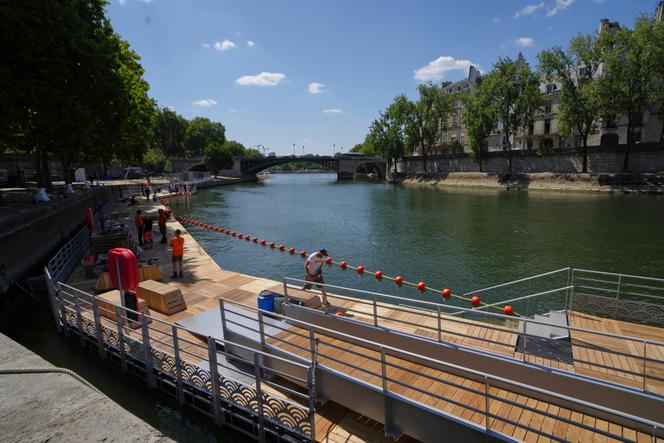


For the first time in over a century, Parisians and tourists will be able to take a refreshing dip in the River Seine. The long-polluted waterway is finally opening up as a summertime swim spot following a €1.4 billion euro cleanup project that made it suitable for Olympic competitions last year.
Three new swimming sites on the Paris riverbank will open on Saturday, July 5 − one close to Paris’s Notre Dame Cathedral, another near the Eiffel Tower and a third in eastern Paris. Swimming in the Seine has been illegal since 1923, with a few exceptions, due to pollution and risks posed by river navigation. Taking a dip outside bathing areas is still banned for safety reasons. The Seine was one of the stars of the Paris Olympics in 2024, whether as the scene of the ambitious opening ceremony or the triathlon and marathon swimming competitions. That didn't go without challenging hurdles such as rainfall increasing levels of bacteria, which postponed some competitions.
The city's authorities have given the green light for the public opening, with water quality results consistently in line with European regulations.
Olympic athletes competing in the river was a spectacular reward for the cost of the cleanup effort . In the run-up to the Games, authorities opened new disinfection units and created a huge storage basin meant to prevent as much bacteria-laden wastewater as possible from spilling directly into the Seine when it rains.
Houseboats that previously emptied their sewage directly into the river were required to hook up to municipal sewer systems. Some homes upstream from Paris also saw their wastewater connected to treatment plants instead of the rainwater system flowing directly into the river.
Paris Deputy Mayor Pierre Rabadan said water is tested daily to confirm it's safe to swim. As on French beaches, different colored flags will inform visitors whether or not they can go in. "Green means the water quality is good. Red means that it's not good or that there's too much current," he said.
Tests have been in line with European regulations since the beginning of June, with only two exceptions due to rain and boat-related pollution, Rabadan said. "I can’t make a bet on the numbers of days when we’ll have to close this summer, but water quality seems better than last year," he added. "We’re in a natural environment, so weather condition variations necessarily have an impact."
Last year, several athletes became ill after competing in the triathlon and open water races during the Olympics, though in most cases it was not clear if the river was to blame for their sickness. World Aquatics stressed the conditions met the sport’s accepted thresholds. "The legacy of these efforts is already evident, with the Seine now open for public swimming − a positive example of how sports can drive long-term community benefits," the organization said.
Until the end of August, swimming sites will be open for free at scheduled times to anyone with a minimum age of 10 or 14 years, depending on the location. Lifeguards will keep a watchful eye on those first dips.
